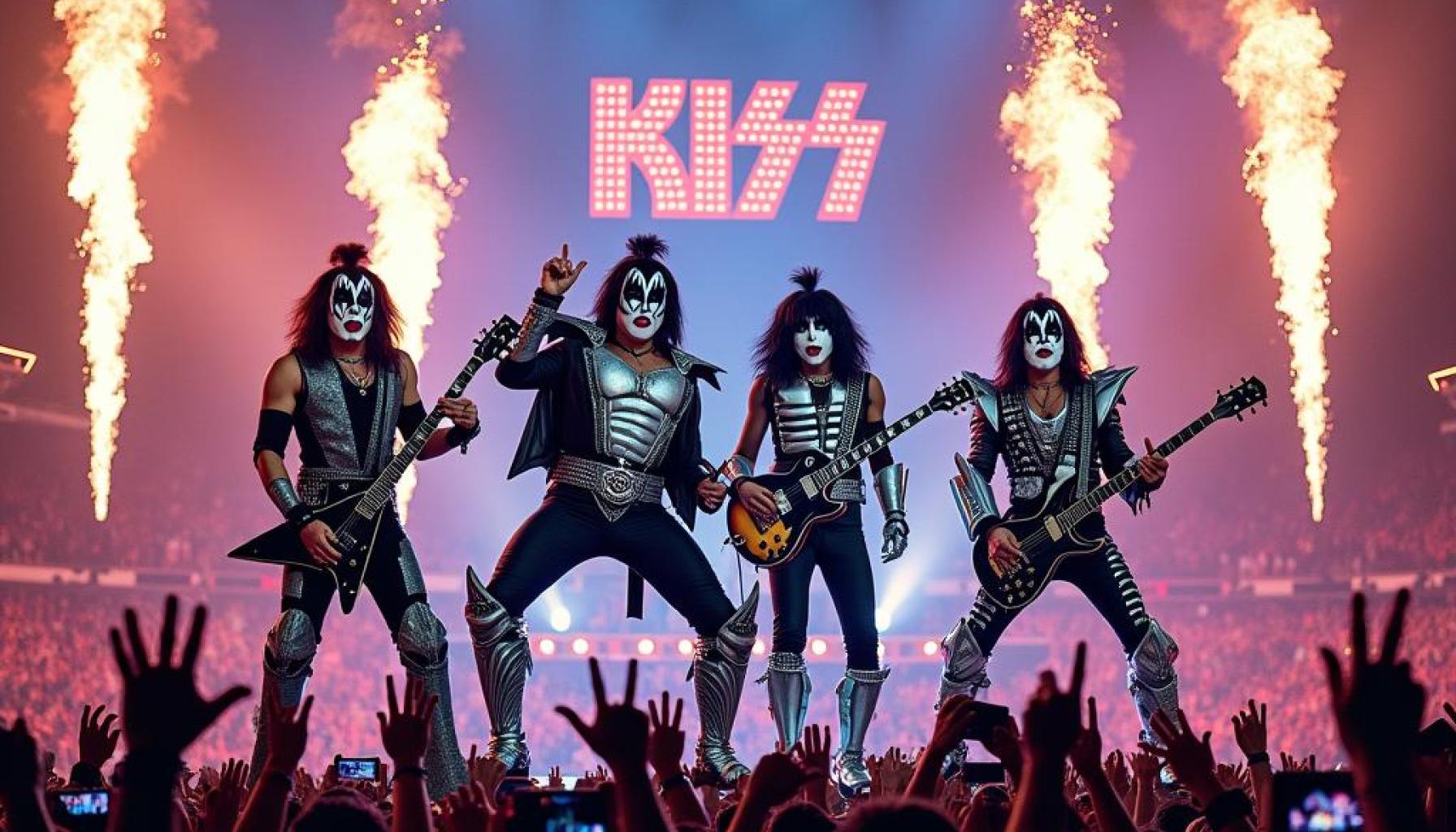
KISS and the Rise of Stadium Rock: A Sonic Spectacle
In the pantheon of rock ‘n’ roll legends, few bands have embodied the audacious spirit of the genre quite like KISS. Formed in 1973, this flamboyant quartet not only revolutionized music but also redefined concert experiences, paving the way for what we now know as stadium rock. As we delve into the phenomenon that is KISS, we’ll explore how their theatrical performances, iconic imagery, and relentless innovation propelled them—and the genre—into the stratosphere.
The Birth of a Phenomenon
Before KISS arrived on the scene, rock concerts were primarily focused on the music. Sure, bands like The Who and Led Zeppelin had their moments of grandeur, but KISS took the concept of a live performance and cranked it up to eleven. With their face paint, platform boots, and outrageous costumes, the band members—Paul Stanley (The Starchild), Gene Simmons (The Demon), Ace Frehley (The Spaceman), and Peter Criss (The Catman)—created an unforgettable visual experience that captivated audiences.
Stagecraft and Theatricality
What set KISS apart was not just their music but their commitment to creating an all-encompassing spectacle. Their concerts were a whirlwind of pyrotechnics, fire-breathing, and elaborate lighting setups that transported fans into a different realm. KISS understood that a concert was more than just a performance; it was an event. They embraced the idea of rock as a theatrical experience, leading to a performance style that was both immersive and exhilarating.
The Power of Iconography
KISS’s use of iconic imagery played a significant role in their rise. The band’s members were not just performers; they were characters, each with their own persona that resonated with fans. Their face paint became synonymous with their brand, allowing them to transcend the music industry and become cultural icons. From lunchboxes to action figures, KISS’s imagery permeated the fabric of popular culture, making them accessible to fans of all ages.
Hit Albums and Unforgettable Anthems
While their theatrical live shows captured the audience’s imagination, KISS’s music was no less impactful. Albums like Hotter Than Hell (1974) and Destroyer (1976) featured hit singles that would go on to become anthems of a generation. Tracks like “Rock and Roll All Nite” and “Detroit Rock City” are not just songs; they’re rallying cries for the rock ‘n’ roll lifestyle. Their infectious energy resonated with fans, and KISS provided the soundtrack for countless adventures.
The Rise of Stadium Rock
As KISS gained popularity, they became a driving force in the rise of stadium rock. They were among the first bands to recognize the potential of large venues, performing in front of thousands of fans eager to experience their explosive shows. Their 1975 tour, which supported the album Dressed to Kill, marked a turning point in live music, showcasing the band’s ability to fill arenas and create an electrifying atmosphere.
Following KISS, other bands began to adopt similar strategies, using larger-than-life performances to captivate audiences. Queen, Aerosmith, and later bands like U2 and Metallica would follow in KISS’s footsteps, embracing the spectacle that stadium rock had to offer. The genre evolved, focusing not just on the music but on the overall experience, combining sound, sight, and storytelling.
The Legacy of KISS
As we look back on the legacy of KISS, it’s clear that their impact on rock music and live performances is immeasurable. They forged a path for future generations of musicians, blending music with theatricality and innovation. Their ability to create a communal experience, where fans could lose themselves in the music and the spectacle, set a standard that many still aspire to today.
KISS remains a testament to the power of creativity and showmanship in the world of music. Their fearless approach to performance art has left an indelible mark on the industry, ensuring that the spirit of stadium rock will continue to thrive for years to come. Whether you’re a die-hard fan or a casual listener, the influence of KISS is unmistakable, echoing through the halls of rock history.
